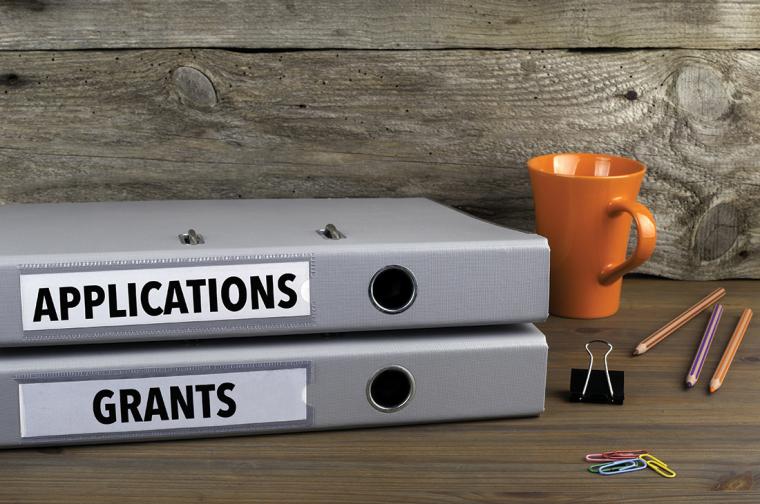
Local grant opportunities are often overlooked when creating or hosting an event in a city. Ticket sales, fees and sponsorship are traditional sources of funding operations; but there are additional avenues to explore that can ultimately increase the likelihood of sustainability of an event in a particular location.
Generally, local grants are available to both non-profit and for-profit entities that meet eligibility guidelines. However, a majority of grants specify that an organization is a 501(c)(3) tax-exempt entity granted to charitable, religious, educational, scientific or literary organizations including those involved in national or international amateur sports competitions. Any grant typically includes a list of restrictions on usage and requires meticulous documentation.
Identifying (sourcing) and securing a grant are two separate functions, each requiring considerable investment in both labor and time. First, the purpose of the event must align with the objectives of a particular grant under consideration.
Generally, that purpose relates to fueling economic growth, promoting cultural heritage, enhancing community engagement, educating a sector of the population or serving a unique societal subset (e.g., youth, developmentally disabled, inner-city, seniors, etc.).
Considering the magnitude of logistical details involved in organizing an event, the laborious time-consuming process to source and apply for a grant without a guaranteed return is the primary reason a rights holder may dismiss the opportunity.
There is value in dedicating time to sourcing local grant connections which typically proves much easier to access than grants available at the state or national level. The following are three potential sources for locating grant funding for events, especially locally.
Internet and AI

The internet and artificial intelligence are user-friendly tools anyone can access to conduct research on potential local, state or national grants. Key words or terms to use in the search depend on the scope of the event (e.g., type, audience) and location.
Popular terms may include grant funding, sport development grants, adaptive sport grants, recreational facility grants, health and wellness grants, innovation in sports funding, inclusive sports initiatives, non-profit sports funding, athlete-development grants, community festival funding, etc.
Diving into leads takes time, especially to evaluate a source for credibility and relevance to ensure a grant is not outdated or defunct. Another cautionary tale is to be prepared to occasionally go down a rabbit hole when accessing grant search engines. Grants.gov and Grantstation.com, for example, are two mega-sources for all types of federal grants searchable by key words.
On a state level, a grant-watch database in Ohio lists 112 foundations that have provided grants for sports and recreation ranging from improving the lives of at-risk military veterans through physical activity to projects that promote rock climbing to those that support Jewish youth camp experiences.
While many internet sources are free, there are twice the number that charge a fee for the trouble of narrowing a search. Savvy tech entrepreneurs understand that grant websites, portals, search engines and databases can be overwhelming to navigate in order to narrow the field to a small number of potential matches and therefore have made a business out of saving an organization valuable time.
Municipal Government and Community Development Agencies
Local government agencies in a city are potential sources to locate local grant opportunities including the chamber of commerce, department of jobs and family services, small business administration bureau and economic development corporations, as well as parks and recreation departments.
These municipal agencies have connections with private and public foundations that provide grant funding to various causes. Generally, a personal visit with a knowledgeable staff member can assist in identifying potential sources since the sheer abundance of opportunities can be overwhelming, especially when many are not readily publicized.
The annual Philadelphia Marathon Weekend, for example, is financed by local grants from Philadelphia’s City Fund which in turn benefits programs that focus on a “holistic approach to youth wellness and inspires lifelong healthy activities.”
The community fund for sport and fitness programming is accessible through an application process with the city. Pennsylvania’s Community and Economic Development department also awarded over $5 million in funding to 11 major sporting events held throughout the state in 2024 with the expectation that more than $240 million would be generated.
A unique event in Tiffin, Ohio where more than two dozen Olympians and Olympic coaches participated in Elite Sport and Culture Week was partially financed by grants typically allocated to local schools by the Department of Jobs and Family Services.
Ten schools donated their annual grant to the event’s organizing committee originally intended to finance speakers who addressed social issues such as mental health, bullying and substance abuse. As a condition of the transfer of funds, the Olympians participated in a speaking tour in more than 40 classrooms as well as the primary event featuring a parade of athletes and an award presented by the General Secretary of the International Fair Play Committee.
Local Tourism Agencies

Most tourism agencies are private, non-governmental entities. Financial support may be received from government entities through taxes derived from sports wagering or other designated taxes; however, corporate fundraising is also a primary revenue source. Many tourism agencies are small destination marketing companies in the business of attracting events that will add economic value within the local community.
Many villages, townships, counties and cities will support some type of tourism bureau that is associated with a state travel association. Larger independent tourism agencies are found in large cities. Some agencies have a dedicated sport division such as Visit Orlando (Florida), Tourism Toronto (Canada) and Discover Los Angeles (California). Examples of independent sports tourism agencies are the Greater Cleveland Sports Commission (Ohio) and the Arizona Sport and Tourism Authority in Glendale, Arizona.
Identical to the allocation by the Pennsylvania Community and Economic Development to fund major sporting events throughout the state, tourism bureaus also provide event rights holders grants to support programs that generate significant revenue and attract visitors. In 2023, Sport Business Journal indicated that 21 states offered destination marketing organizations grants specifically to attract and operate sporting events.
The Virginia Tourism Corporation, for example, used revenue derived from legal sports wagering to allocate $1 million for the Sports Marketing Incentive Fund which financed dozens of events ranging from youth volleyball and BMX championships to the 2024 NAIA national men’s golf championships and NCAA Division III Amos Alonzo Stagg Bowl.
Smaller grants from local tourism agencies are also available. For example, the Belmont County Tourism Council (BCTC) in eastern Ohio awards small grants (a few thousand dollars) to nonprofits for events with priority to those that attract overnight visitors. The one condition is that the BCTC logo must be used in promotional materials.
Finding suitable funding opportunities through a local grant to assist in financing an event is only part of the process. Organizers or the rights holder often complete a detailed grant application outlining the event’s purpose, objectives and expected impact. Generally, the grant application requires supporting documents from budgets to timelines that must be meticulously prepared.
Once submitted, there is typically a lengthy period during which proposals are evaluated on the merits of matching criteria, the amount of fund allocations are determined and final decisions are made. The key is to invest the necessary time to find a potential match followed by carving out additional hours for the equally time-consuming process of completing an application. The time invested in completing a successful application, however, is a small effort compared to the substantial financial benefits it can provide. SDM

